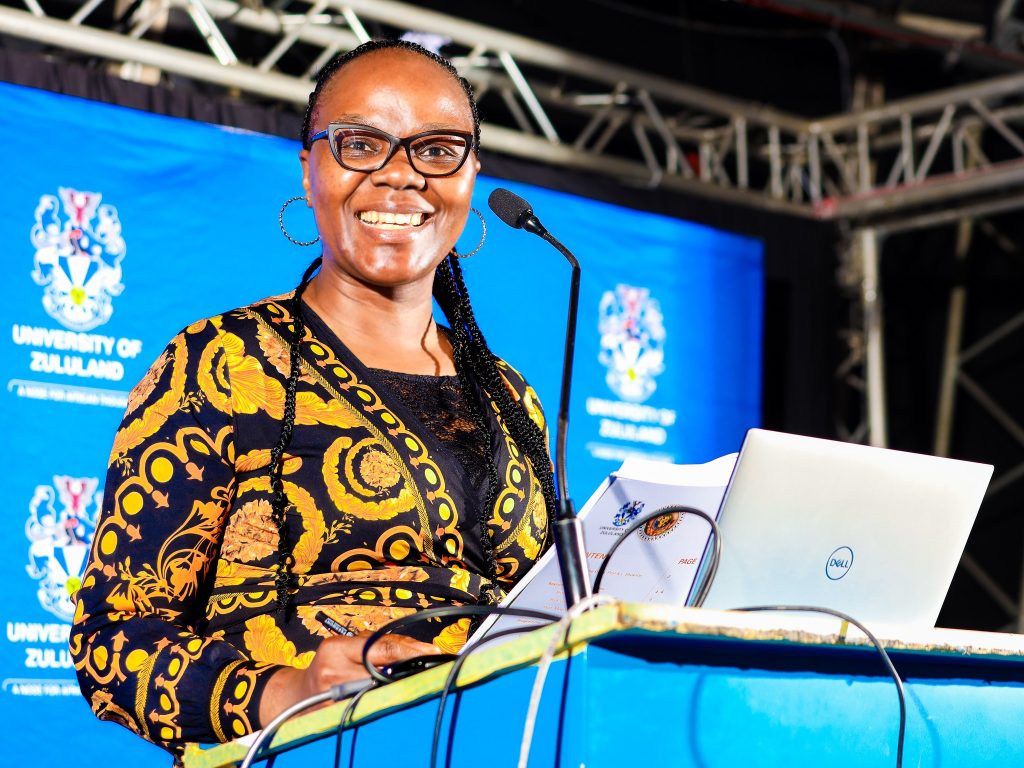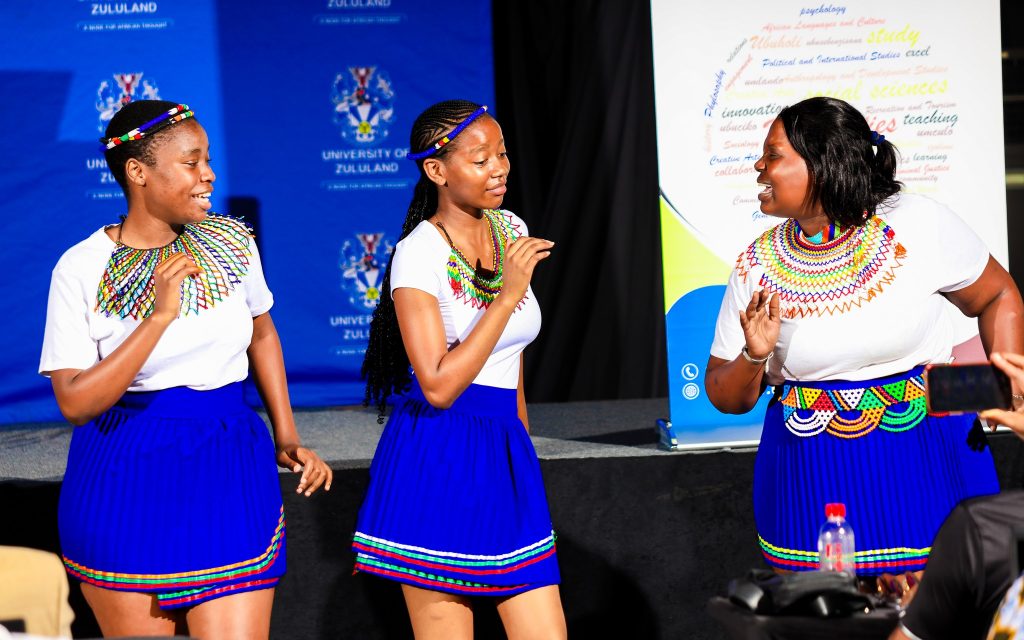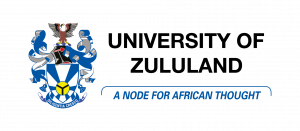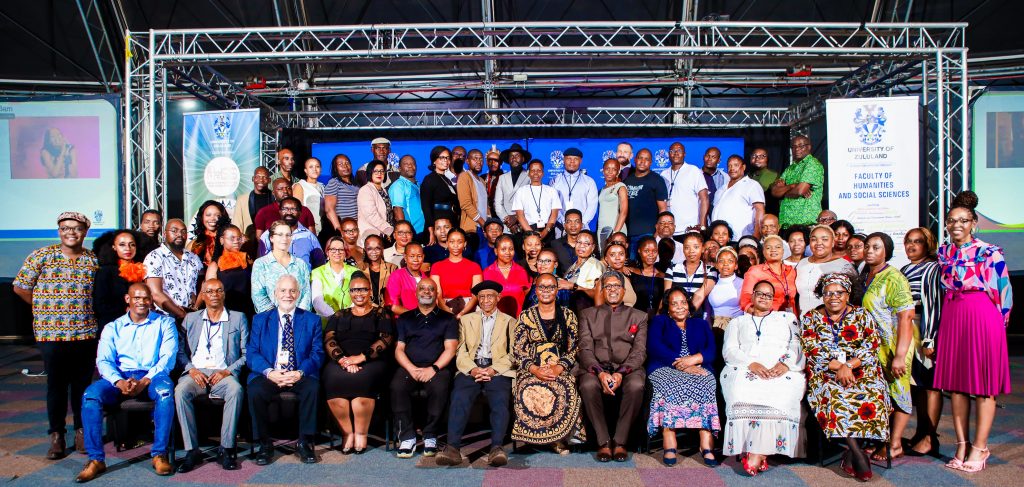The Faculty of Humanities and Social Sciences (FHSS) at the University of Zululand (UNIZULU) recently hosted the highly successful 15th Humanities and Social Sciences International Conference at Umfolozi Hotel Casino Convention Resort.
Themed “Problematising UBUNTU as a critical project in the humanities and social sciences: Towards healing and well-being of communities, the two-day event brought together esteemed international scholars to engage in a fruitful discussion and presentations on the significance of UBUNTU in addressing societal challenges.
The conference commenced with opening remarks by Professor Kevin Nadioo, Deputy Dean: Research, Innovation and Internationalisation, followed by a hearty welcome by Prof Allucia Shokane, Dean of FHSS.

“The conference seeks to investigate novel methods and to problematise solutions through ubuntu perspectives. This can be accomplished by promoting an understanding of ubuntu and the interrelatedness that exists between individuals, societies and the environment. Integrating ubuntu viewpoints in higher education can help students cultivate skills such as empathy, critical thinking abilities and a dedication to social justice. Therefore, the conference will critically explore the complexities and nuances of ubuntu, a concept deeply rooted in African philosophy and culture,” said Prof Shokane.
Prof Nokuthula Kunene and Prof Prince Jaca, the deputy vice-chancellors of research and innovation and institutional support, respectively, expressed their support for the event. Their blessings paved the way for a productive and insightful gathering.
“The theme of this conference is both timely and critical as our institution progresses to navigate and bring to light solutions that can bring positive change to African issues,” said Prof Kunene.
After a mesmerising musical performance by the UNIZULU Choir, the attendees listened to a keynote address by Prof Bernard Magobe, a distinguished philosopher with extensive experience in teaching and supervising postgraduate researchers.

During the breakaway sessions, presenters tackled diverse sub-themes. One of the notable research papers was titled Cybercrime Risks Among Internet Users in Umzingazi Rural Area, Kwazulu-Natal. The paper was presented by Talent Biyela, who, naturally, was among those who received the best presented paper prize.
Day two of the conference saw a captivating keynote address by Prof Thomas Mattew from California State University in Los Angeles.
“As scholars we must challenge dominant discourses and create spaces for marginalized voices to thrive,” said Prof Mattew.
The attendees hailed the conference for its engaging and informative programme, with many expressing an appreciation for the opportunities to network and share knowledge.
The event’s success underscores Strategic Goal 1 of UNIZULU’s Vision 2027, which speaks to developing the distinctiveness of UNIZULU as an African university by establishing UNIZULU as a key node for African thought, ensuring that the curricula reflect African issues and perspectives, and cultivating excellence in African languages, and cultural and social studies.
– Nomvelo Xulu
Pictures: James Thwala



